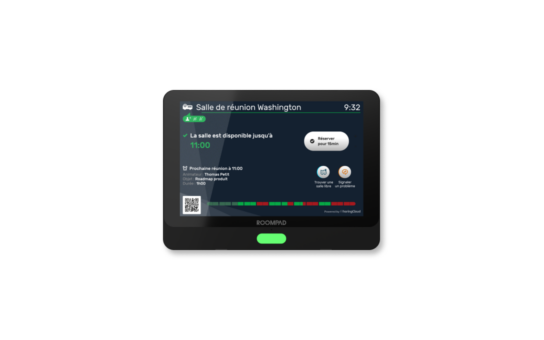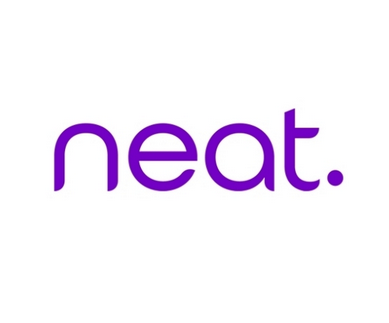The 4-day week: think over, prepare, put to use

It is obvious that the 4-day week has many advantages. Yet, it is a work approach that needs to be well prepared. To do so, a company must take the time to think about and introduce the application of this new work organisation at an early stage.
Since the pandemic crisis, the change in work culture, which is increasingly moving towards a flexible and hybrid organisation, has led many companies to open discussions on the 4-day week. Indeed, there is a growing demand from employees. According to a survey by ADP in May 2022, 64% of French employees would like to have greater flexibility in their working hours. They are even 57% to declare that they would be willing to reduce their pay in exchange. That says it all!
Without necessarily reaching this point, many French companies have decided to experiment with the 4-day week. So far, to comply with French law, companies can choose between two solutions:
- Increase the daily workload in order to spread the 35-hour week over 4 days.
- Or say goodbye to the 35-hour week and implement a 32-hour week with eight hours of work per day, without any reduction in pay.
Several pioneering French companies have already successfully adopted the 4-day week. Among them are the French online retailer LDLC, the green electricity supplier Elmy, the digital engineering and services company IT Partner and the media and online recruitment platform Welcome to the Jungle.
Benefits of the 4-day week
These companies are not isolated cases. As mentioned in a previous article, experiments with the 4-day week have brought about some positive effects in companies all over the world.
Improved work-life balance
This was one of the major consequences of the pandemic crisis: over this period, the hectic race between commuting, office, work at home and private life came to a halt. The entire professional world took the opportunity to thoroughly review its approach to work.
The increased use of hybrid work, combining on-site and remote working, in the wake of the pandemic is the best example of this trend. Having a good balance between personal and professional life is now a key factor for professional fulfilment. It is above all a factor in improving the quality of life in the office.
In practice, for many employees, the 4-day week means less time spent commuting, less stress and the possibility of better private life organising, but also sometimes of dealing with unforeseen circumstances. As a result, many studies prove that this better distribution of time allows employees to spend more time with their family, to do more sport or to be able to allocate more time to their leisure activities.
Improved employee productivity
These activities are essential for the well-being of everyone. Once they are at work, employees are more focused, more efficient and less distracted. They are physically and psychologically more able to carry out all their tasks.
This is a direct consequence of a better work-life balance. More fulfilled, more rested and more motivated, employees are more efficient according to the many studies on this subject. One example is the company Welcome to the Jungle, which, after adopting the 4-day week, saw 87% of its employees being more productive. Almost 90% of them even observed a positive effect on their mental health as a result of adopting such a system.
With the 4-day week, the watchword is efficiency. Employees tend to be better organised and focused. The result is greater efficiency, less time spent in meetings and the gradual disappearance of the presenteeism culture. Finally, by allowing employees to manage their daily tasks on their own, the rate of absenteeism is also reduced.
Retention and recruitment of new talents
The 4-day week is a powerful HR tool. In addition to retaining your employees, this work organisation is an argument for recruiting new talents from the younger generations. In certain fields where the war for talent is raging (particularly in the IT sector), the 4-day week improves your employer brand and makes you more attractive.
Significant environmental benefits
The ecological argument is also in favour of reducing working time. It would reduce the carbon footprint of companies. In May 2021, a study by the British association Platform indicated that a general switch to a 4-day week in the United Kingdom would reduce CO2 emissions by around 127 million tons per year.
Indeed, the 4-day week reduces employee commuting and saves energy on site. In addition to supporting a company’s CSR approach, the 4-day week is therefore part of a smart building approach. This makes it a very interesting argument in the context of rising energy prices. According to Laurent de la Clergerie, the 4-day week has meant energy savings of around 10% in one year for his company, LDLC.
The 4-day week, avoid perverse effects
Although the 4-day week seems to bring its share of advantages, both for the company and for the employees, its complexity of application should not be overlooked.
Pay attention to inequalities between professions
Many experts agree on this fact: the feasibility of the 4-day week is not the same for all professions. For example, for so-called “flow” professions, the 4-day week requires a greater reorganization of work processes. In addition, sales, support functions and customer service jobs require maintaining a quality of service over 5 days.
As a result, the 4-day week requires careful and flexible preparation of working hours or means working in pairs. For all positions working in project mode, the extent of the 4-day week will logically be “less” important. This difference should be borne in mind to avoid employees feeling disadvantaged in the long term.
Pay attention to stress and team cohesion
Does the 4-day week imply reduced objectives? As paradoxical as it may seem, this new work organisation can sometimes generate additional stress for some employees. To avoid this, the company should make sure that it sets realistic objectives for its employees and that it does not put too much pressure on them from the start.
Moreover, in a hybrid work context, the 4-day week can be combined with home office. To avoid weakening the social ties at work, which may affect some employees, the company must preserve collective time on its premises. For example, it is recommended that managers meet with their entire team at least once a week on site.
Our advice for a smooth transition to the 4-day week
To ensure that this extra day off does not turn into a poisoned chalice, it is important to understand that it is above all an HR challenge. Implementing the 4-day week requires method and good communication.
Measure the temperature of employees
A company should not embark on such a project simply to follow a trend. First of all, it is important to ensure that this new organisation satisfies a collective desire. Beforehand, team meetings must be organised to bring up the expectations and fears on this subject. In this way, each manager can:
- set priorities for their team,
- clarify the vision of each employee,
- define clear objectives as a team.
Reconsider the organisation of work within each team
Managers have a key role to play in the implementation of the 4-day week. They need to build trust and send a clear message to their team members. With the 4-day week, what counts is the result, not the time spent to achieve it. Managers must rely on the versatility of their employees by creating, for example, pairs per position so that each project can remain fluid under all circumstances. This culture of asynchronous working is a real asset for the implementation of the 4-day week.
Conduct a test phase
To quickly assess the viability of this new work organization, a test phase is essential. During this phase, the company must take a proactive approach in order to support employees in the new management of their working time.
In addition, it is important to measure the points of improvement and the effects felt. Has the rate of absenteeism decreased? Is the occupancy rate of meeting rooms increasing or decreasing? To achieve this, the company should not hesitate to invest in a Smart Office ecosystem in order to be able to rely on accurate and easy-to-use data.
With regard to the effects perceived, managers should report on the experiences and opinions of employees to determine whether the quality of life at work and the fulfilment of employees is indeed improving.
Finally, all of these measures must also be implemented gradually over time. Although very useful during the test phase, to fine-tune the project, these indicators will also be useful during and after the roll-out phase of the 4-day week.
Be flexible
Based on this initial feedback, build then a clear roadmap. Don’t be afraid to imagine cyclical 4-day week patterns depending on the different departments in your company and the needs of your employees.
Implementing a 4-day week tailored to the wishes of each employee would be far too complicated, but it is wise to be flexible and to listen to the needs of as many people as possible. The 4-day week is first and foremost an HR challenge that must be co-constructed with all the stakeholders in a company.
SharingCloud is currently experimenting and testing the 4-day week. Convinced that this new work organisation is part of the future of hybrid work, we will not fail to inform you of the progress of its application throughout the year.
Our Smart Office solutions help and support companies wishing to embark on the adventure of the 4-day week. To find out more, don’t hesitate to contact us, click here!


 RoomPad®
RoomPad® GroomPad
GroomPad GuestPad
GuestPad Instant Box
Instant Box Flex office and remote working 100% in-person or 100% remote, there's no need to choose anymore.
Flex office and remote working 100% in-person or 100% remote, there's no need to choose anymore. Hybrid meeting spaces and experiences A hybrid work organisation that supports collective performance
Hybrid meeting spaces and experiences A hybrid work organisation that supports collective performance Hybrid digital communication Capitalise on your employer brand and engage your employees with 360° interactive communication
Hybrid digital communication Capitalise on your employer brand and engage your employees with 360° interactive communication Welcoming and managing visitors Improve and simplify the reception experience for your employees and visitors, thanks to a smart visitor management system
Welcoming and managing visitors Improve and simplify the reception experience for your employees and visitors, thanks to a smart visitor management system Measure the use of spaces and services Anticipate your space allocation through data collection
Measure the use of spaces and services Anticipate your space allocation through data collection Dell Technology
Dell Technology Haworth
Haworth Logitech
Logitech Microsoft
Microsoft Pulse Origin
Pulse Origin Crestron
Crestron Qbic Technology
Qbic Technology SES Imagotag
SES Imagotag Surfy
Surfy Ellz
Ellz IAdea
IAdea ARD
ARD Neat
Neat en
en fr
fr de
de

